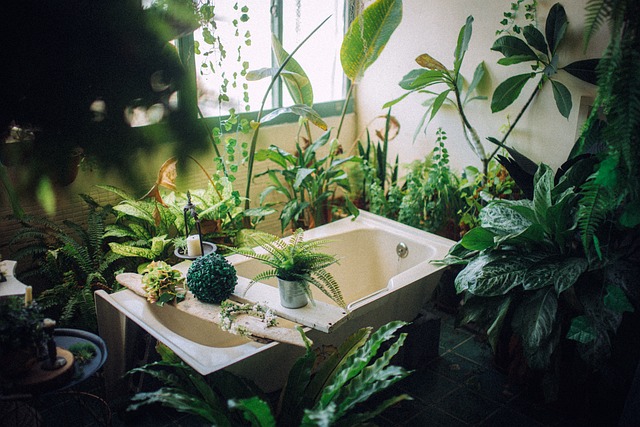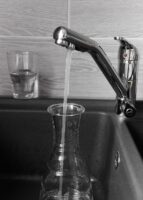Indoor plants not only enhance the aesthetic appeal of our homes but also contribute to our well-being by purifying the air and reducing stress. However, to ensure that our indoor plants thrive and continue to provide these benefits, regular cleaning is essential. Cleaning your home’s indoor plants goes beyond just wiping off the dust from the leaves.
In this blog post, we will explore the numerous benefits of regular cleaning for your home’s indoor plants, and why it should be an integral part of your plant care routine.
Table of Contents
1. Improved Air Quality
One of the primary benefits of having indoor plants is their ability to purify the air. They absorb carbon dioxide and release oxygen during photosynthesis, making the air cleaner and healthier. However, to ensure that this process is as efficient as possible, it’s essential to keep their leaves clean. Dust, dirt, and pollutants can accumulate on the plant’s foliage, hindering its ability to breathe. Regular cleaning of the leaves with a damp cloth or a gentle shower can significantly enhance the air-purifying capabilities of your indoor plants.
2. Pest Prevention
Indoor plants are vulnerable to various pests like spider mites, aphids, and mealybugs. Regular cleaning is an effective way to prevent pest infestations. Dust and debris on the leaves create a favorable environment for these pests to thrive. By cleaning your plant’s foliage regularly, you not only remove potential hiding spots for pests but also physically dislodge any existing ones. It’s a natural and non-toxic method to keep your indoor plants pest-free.
3. Enhanced Photosynthesis
Photosynthesis is the process by which plants convert sunlight into energy, producing food for their growth. Clean leaves with no obstruction allow better absorption of sunlight. When leaves are coated with dust and grime, it reduces the amount of light they can absorb, potentially slowing down photosynthesis. Cleaning your indoor plants’ leaves will ensure they receive the maximum amount of light needed for healthy growth.
4. Improved Humidity Regulation
Many indoor plants help regulate indoor humidity levels by releasing moisture through a process known as transpiration. When the plant’s leaves are clean, they can transpire more effectively. This helps maintain the optimal humidity level in your home, which is beneficial for both the plants and your well-being. Clean leaves also reduce the risk of mold and fungal growth that can occur in the presence of excess moisture.
5. Aesthetically Pleasing
Clean indoor plants look more appealing. Dusty, dirty leaves can make your plants appear unkempt and neglected. Regular cleaning helps maintain the beauty of your indoor garden, making it a focal point in your home decor. Clean, vibrant foliage can elevate the overall ambiance of your living space and bring a sense of serenity and freshness.
6. Disease Prevention
In addition to pests, dirty leaves can also be a breeding ground for diseases. Fungi and bacteria can thrive on the moist, dusty surfaces of the leaves, which can lead to various plant diseases. Regular cleaning can significantly reduce the risk of diseases, keeping your indoor plants healthy and vibrant.
7. Longevity
Just as regular cleaning and maintenance are essential for the longevity of any household item, the same principle applies to indoor plants. Clean leaves are less likely to develop issues that can shorten the plant’s lifespan. By ensuring that your plants remain free from dust, pests, and diseases, you can enjoy their company for years to come.
8. Stress Reduction
Studies have shown that interacting with indoor plants can reduce stress and anxiety. The act of caring for your indoor plants, including cleaning them, can be a therapeutic and relaxing experience. Taking a moment to inspect and clean the leaves can provide a sense of mindfulness and connection to nature, contributing to a sense of well-being and peace.
9. Better Growth and Flowering
Healthy plants are more likely to grow vigorously and produce beautiful flowers. Regular cleaning, along with appropriate watering and fertilizing, contributes to the overall health of your indoor plants. When your plants are healthy, they are more likely to flourish, producing vibrant flowers and lush foliage that can enhance your living space.
10. Education and Bonding
Caring for indoor plants, including cleaning them, can be an educational experience for both adults and children. It provides an opportunity to learn about plant biology, growth, and maintenance. Additionally, it can be a bonding experience for families, as everyone can participate in the care of the indoor garden. Teaching children the importance of taking care of living things can instill a sense of responsibility and environmental consciousness.
See also our post on 5 Importance of Regular Cleaning on Your Home’s Indoor Air Quality
Practical Tips for Cleaning Your Indoor Plants
Now that we understand the importance of regular cleaning, let’s explore some practical tips to ensure effective cleaning without harming your indoor plants:
- Choose the right cleaning method: Different plants may require different cleaning methods. For example, plants with hairy leaves can be gently brushed using a soft brush, while plants with smooth leaves can be wiped with a damp cloth. Research the specific requirements of your plants before proceeding.
- Use clean water: When wiping the leaves, use clean water to avoid transferring any contaminants onto the plants. If necessary, you can add a mild, organic soap to the water for stubborn grime, but be sure to rinse the leaves thoroughly afterward.
- Avoid harsh chemicals: Harsh cleaning chemicals can be detrimental to the health of your indoor plants. Opt for natural and non-toxic cleaning solutions whenever possible.
- Be gentle: When cleaning your plants, handle them with care. Avoid excessive pressure or rubbing, as it can damage the delicate foliage.
- Set a cleaning schedule: Establish a regular cleaning schedule that suits your plants’ needs. Some plants may require more frequent cleaning, especially if they are placed in dusty environments.
Conclusion
Regular cleaning is an essential aspect of caring for your home’s indoor plants. By embracing this practice, you can enjoy a myriad of benefits, including improved air quality, prevention of pests and diseases, enhanced growth, and a greater sense of well-being. Remember, cleaning your indoor plants should be approached with mindfulness and care, ensuring that you use the right methods and avoid any potential harm. So, let’s embark on this journey of nurturing and maintaining clean and healthy indoor plants that contribute to a harmonious living space.














